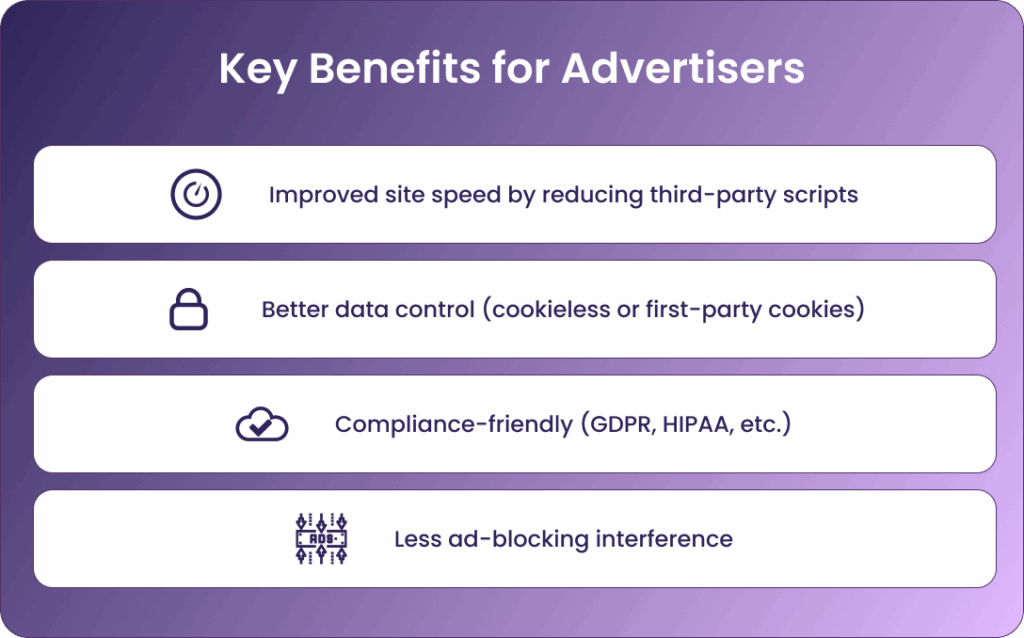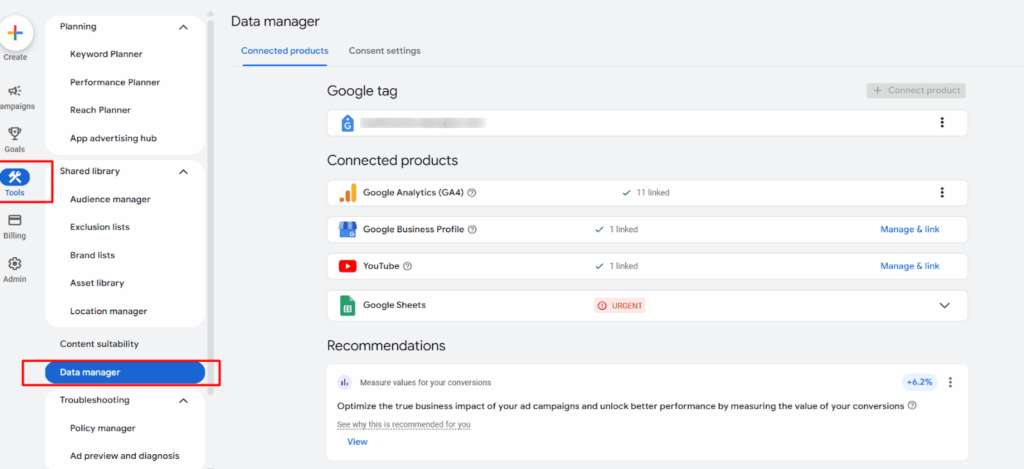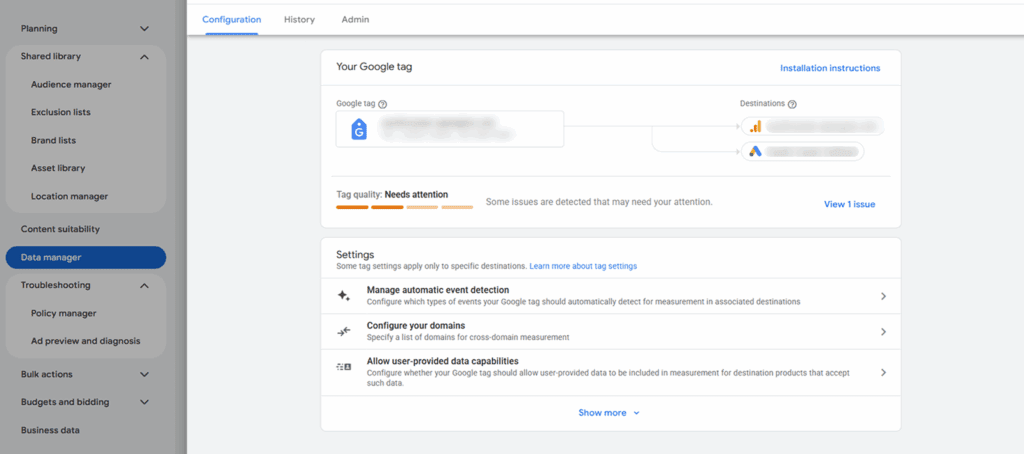Google has rolled out a significant update to its advertising and analytics infrastructure with the launch of Google Tag Gateway, offering hospitality businesses a powerful new way to enhance their digital marketing performance and guest data collection capabilities.
What is Google Tag Gateway?
Google Tag Gateway represents a fundamental shift in how hospitality businesses can implement Google’s tracking technologies. This innovative solution allows hotels, restaurants, and other hospitality venues to serve Google tags—including Google Analytics, Google Ads, and Google Tag Manager—directly from their own domain using a Content Delivery Network (CDN) such as Cloudflare.
Unlike traditional third-party tag implementation, this first-party delivery method significantly improves data accuracy by reducing the likelihood of tags being blocked by browsers or privacy tools that guests may be using when researching accommodations or making reservations.
Here’s a diagram from Google showing how it works:
Why This Matters for Hospitality Businesses
The hospitality industry relies heavily on accurate guest journey tracking, from initial property searches to final booking confirmations. Google Tag Gateway addresses several critical challenges that hotels and restaurants face in today’s privacy-conscious digital landscape:
Enhanced Guest Journey Tracking: With improved data accuracy, hospitality businesses can better understand how guests discover their properties, what amenities they’re interested in, and which touchpoints drive actual bookings.
Improved Conversion Tracking: For hotels running Google Ads campaigns for room bookings or restaurant reservations, more reliable conversion signals lead to better automated bidding strategies and improved return on ad spend (ROAS).
Better Site Performance: By reducing reliance on third-party scripts, hotel websites and reservation systems can load faster, providing a smoother booking experience for guests.
Key Benefits for Hospitality Marketing
1. Superior Data Control and Compliance
Hotels and restaurants can maintain better control over guest data while ensuring compliance with hospitality industry regulations such as GDPR and data protection requirements that are particularly important when handling guest information and booking details.
2. Enhanced Reservation Funnel Analytics
With first-party data collection, hospitality businesses can track the complete guest journey more accurately—from initial property searches through room selection, amenity browsing, and final booking confirmation.
3. Reduced Ad-Blocking Interference
Many travelers use ad blockers while researching accommodations. Google Tag Gateway helps ensure your analytics continue working even when guests have privacy tools enabled, providing more complete insights into booking behavior.
4. Improved Site Speed for Mobile Bookings
Given that many hotel bookings now happen on mobile devices, faster loading times can significantly impact conversion rates for direct bookings and reduce dependency on third-party booking platforms.

Implementation Requirements
Before implementing Google Tag Gateway for your hospitality business, ensure you have:
- A Cloudflare or other CDN account with DNS access
- Your hotel or restaurant website domain connected to your CDN
- An active Google Ads account for your property
- Access to your website’s analytics implementation
Setting Up Google Tag Gateway
The setup process is straightforward and designed to minimize disruption to your existing booking systems:
- Access Google Ads: Log into your Google Ads account and navigate to the Data Manager section

- Configure Google Tag Settings: Click on “Google tag” and then “Admin” to access configuration options

- CDN Integration: Follow the guided setup to connect your CDN and configure the tag gateway for your property’s domain
- Verification: Complete the setup by verifying your CDN configuration through Google’s interface
Once configured, your Google tags will be served from your hotel’s domain (e.g., yourhotel.com/analytics) instead of Google’s servers, providing the first-party data benefits while maintaining all existing functionality.
Below is a GIF walkthrough demonstrating how to set up the Google Tag Gateway for advertisers in Google Ads by routing your measurement through your website’s CDN.
Comparison: Google Tag Gateway vs Server-Side Implementation
For hospitality businesses evaluating tracking solutions, it’s important to understand how Google Tag Gateway compares to more complex server-side implementations:
Google Tag Gateway offers simplicity and ease of use, making it ideal for independent hotels, restaurant chains, and smaller hospitality groups that primarily use Google’s advertising and analytics tools. The setup requires minimal technical expertise and can be implemented without major changes to existing booking systems.
Server-Side Tracking provides maximum customization and control but requires significant technical resources and ongoing maintenance, typically better suited for large hotel chains with dedicated IT teams.
Impact on Hospitality Marketing Performance
Early adopters in the hospitality industry are reporting improved data quality for key metrics such as:
- Direct booking conversion rates
- Guest acquisition costs across different channels
- Revenue attribution for marketing campaigns
- Guest behavior analytics throughout the booking funnel
These improvements are particularly valuable for hospitality businesses working to increase direct bookings and reduce reliance on third-party booking platforms.
Conclusion
Google Tag Gateway represents a significant advancement in hospitality marketing technology, offering hotels and restaurants improved data accuracy and guest journey tracking with minimal technical complexity. For hospitality businesses prioritizing direct bookings and guest data ownership, this accessible solution provides enhanced digital marketing performance while maintaining control over guest data, making it an essential consideration for optimizing marketing infrastructure and guest experience analytics.
Ready to Maximize Your Hotel’s Marketing ROI with Google Tag Gateway?
Don’t let blocked tracking cost you bookings. Get first-party data accuracy that actually shows your true guest acquisition performance.

Leave a Reply